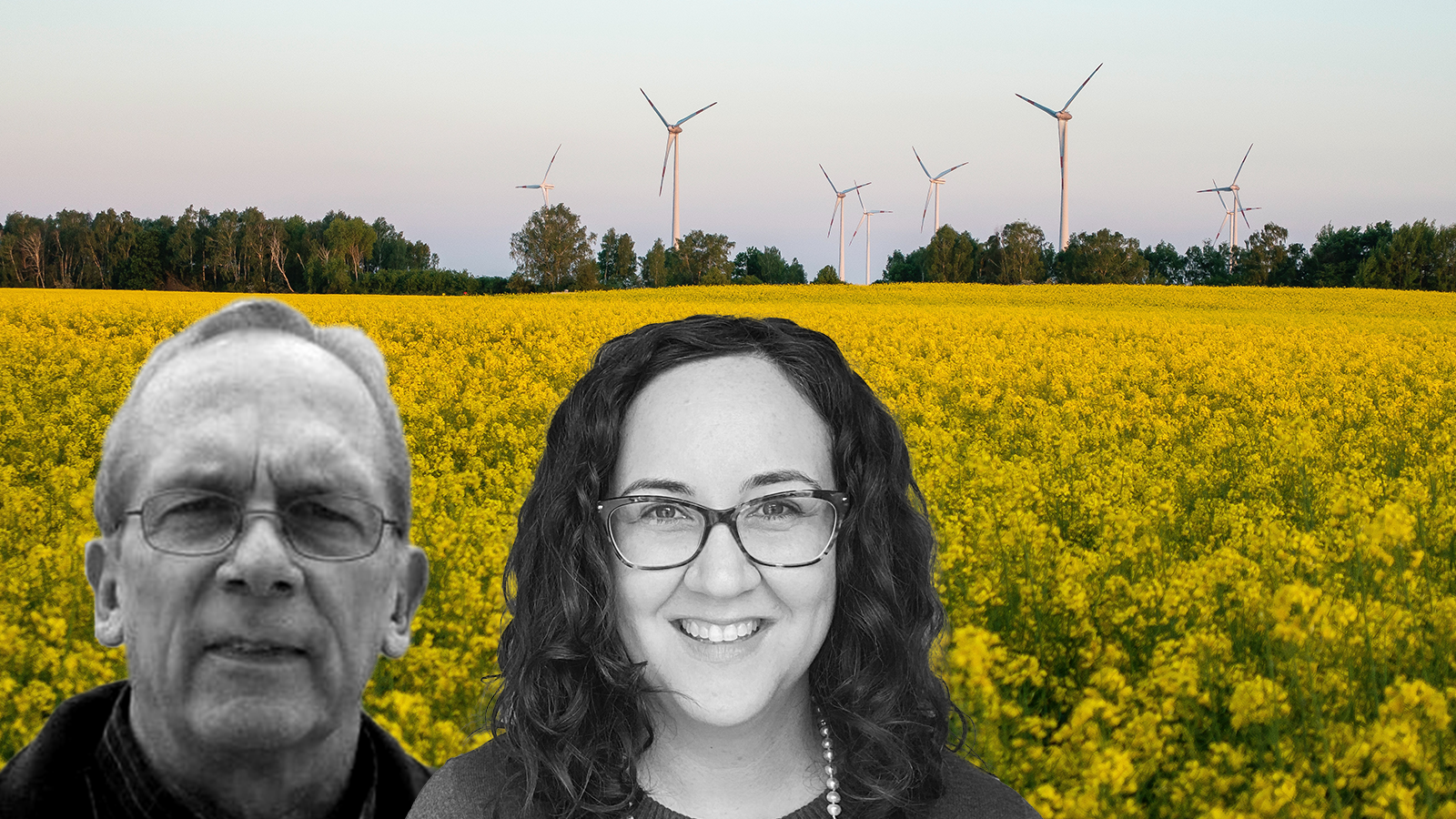Editor Bud Ward, who spent decades covering environmental issues before founding Yale Climate Connections in 2007, will retire at the end of 2022. His colleague over most of the past four decades, Jan O’Brien — the site’s assistant editor and website manager since its inception — also is retiring.
Sara Peach will lead the site as editor-in-chief starting in January 2023.
Ward’s career in environmental journalism began in the early 1970s, when he served as editor of BNA’s (now Bloomberg BNA’s) weekly “Environment Reporter.” After serving from 1979 to 1981 as assistant director of the U.S. Congress’s National Commission on Air Quality, or NCAQ, under the Clean Air Act, he founded the Environmental Law Institute’s monthly policy magazine, “The Environmental Forum,” where he was editor from 1982 to 1988. With O’Brien, he next established “Environment Writer,” a newsletter for journalists covering natural resources and environmental issues, and a year later he was a co-founder of the Society of Environmental Journalists.
During his career, he served as a frequent environmental commentator for NPR’s “All Things Considered” and “Morning Edition,” worked as an advisory editor for the Oxford University Second Edition of Encyclopedia of Climate and Weather, administered the jury for the $75,000 Grantham Prize for Excellence in Reporting on the Environment, and established and directed the foundation-funded Central European Environmental Journalism Program. For four years, he was an original jury member for the annual Climate One Stephen H. Schneider Award for Outstanding Climate Science Communication. George Mason University’s Center for Climate Change Communication in 2009 named him its first “Climate Change Communicator of the Year.” In the following year, he was elected a Fellow of the American Association for the Advancement of Science, or AAAS.
Ward founded Yale Climate Connections, then named the Yale Forum on Climate Change and the Media, in 2007. The site initially focused on fostering dialogue on climate change among scientists, the media, policymakers, and the public. In 2014, the site relaunched under its current name and added to its offerings a national radio program produced by ChavoBart Digital Media, and now carried on nearly 700 affiliates nationwide.
Website Manager and Assistant Editor Jan O’Brien also is retiring at year’s end. O’Brien has worked with Ward at Yale Climate Connections since its founding in 2007. Her background includes many years in the nonprofit sector, particularly focused on environmental, health, and safety issues in print and electronic media.
Before joining Yale Climate Connections, she worked with the National Safety Council at its Chicago-area headquarters after earlier working in its Washington, D.C., office as an environmental communications specialist. Her work has focused on the internet, web development, and website management.
What’s next for Yale Climate Connections
Peach first contributed to Yale Climate Connections in 2009, when she reported for the site from the U.N. climate negotiations in Copenhagen. Since joining the editorial team in 2016, she has overseen the Climate Connections radio program.
Her reporting on environmental issues has appeared in National Geographic, Scientific American, Environmental Health News, and Grist, among others, earning awards from the National Press Photographers Association, Pictures of the Year International, and the Society of Environmental Journalists.
Previously, Peach was a faculty member at the University of North Carolina-Chapel Hill, where she led courses in environmental journalism and served as the associate director of the Reese News Lab, a media entrepreneurship program. In 2015, she was a winner of the Knight News Challenge.
“I’m humbled and thrilled to be selected as the next leader of Yale Climate Connections,” Peach said. “Our team plans to expand our extreme weather coverage and Spanish-language content while continuing to provide the quality climate coverage that audiences have come to expect.”


